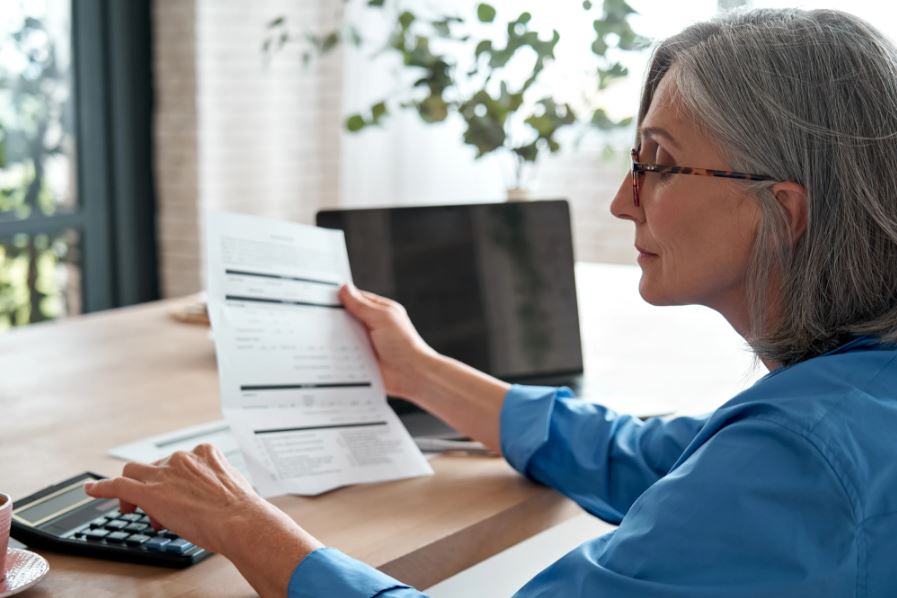If you’re a woman making a living in Australia, you’re likely to retire with fewer superannuation benefits than your male counterpart. This disparity is not only unjust, but it can also reduce a woman’s financial independence in retirement. It is especially concerning because women live longer than men and hence require more money to fund their retirement years.
Do you know that around 80% of women who did not prior take proper superannuation advice, retire with insufficient superannuation assets to live a reasonable lifestyle? In fact, when women retire, their average superannuation account balance is roughly $70,000 less than that of males. This might be due to a variety of factors. Many women, for example, leave the workforce to have children or care for family members, and they are also more likely to work part-time or for low pay.
Women are also less likely to gain from contributions over the mandatory superannuation guarantee rate on average. Whatever the cause, there is no doubt that women have a significantly greater challenge when it comes to saving for retirement. This is why it’s critical that all women take basic actions to increase their super savings.

There are two major reasons why women have fewer superannuation benefits:
- Women continue to earn less than men on average, and because mandatory employer payments are calculated as a percentage of salary, women receive fewer benefits. Women continue to be paid less than males in many areas, despite current legislation and changing views.
- Maternity leave and time off to raise a family frequently disrupt a woman’s professional life, and it is often women who take time off to care for elderly parents.
Many women who take time off to raise a family can take advantage of the Commonwealth Paid Parental Leave Scheme, but the required superannuation contribution does not apply.
What does this imply for you?
If you leave with less superannuation, you may be more dependent on the government-age pension once you retire. This not only has the potential to diminish your quality of life in retirement, but it also limits your independence.
What can you do as a woman to maximize your superannuation?
There are three critical actions you can take when working to ensure you get the most out of your super:
- Superannuation advisors advise that you shouldn’t think about super as something you can think about after you retire – it may be too late by then. The sooner you start taking charge of your super, the better off you’ll be in retirement. If you have more than one super account (as is often the case if you’ve worked at multiple locations), consider combining them into one low-fee, member-focused super fund. Contact Omura Wealth Advisers for more information. As a result, you may avoid paying various management costs. Consider the following before making the switch:
- Can you acquire the same level of insurance coverage in your selected fund?
- Can your employer contribute to the fund you’ve chosen?
- While working, contribute to your personal super fund. Sure, it may mean a slight decrease in your monthly salary now, but there may be tax advantages to voluntary super payments, and you’ll have more money to enjoy when you retire. Furthermore, if your annual income is less than $57,000, the government may donate up to $500 to your super account. Depending on your income, this co-contribution might be as much as 50 cents for every dollar you contribute after tax.
- Talk to your partner about how they can help you boost your super by making a spouse contribution to your super account or arranging for contribution splitting from their job.

How can this be fixed?
To overcome the inadequacy of the superannuation system to deliver a safe and sustainable retirement income for women, a suite of alternatives is clearly necessary.
According to some Australian superannuation advisors, superannuation taxation settings need to be significantly rebalanced. The huge tax reductions on superannuation that accrue to high earners and males more than women were emphasized. It has become a platform for massive taxpayer-subsidized wealth growth. Because of these policy conditions, there is a severe gender disparity.
One of the significant benefits of engaging a superannuation advisor in Australia is the opportunity to set up a Self-Managed Superannuation Fund (SMSF). With an SMSF setup, individuals gain greater control over their retirement savings, allowing them to tailor their investment strategy and potentially achieve higher returns.
Another opinion from a superannuation advisor is that salaries will be the most important motivator in fixing the issue. Obtaining wage equality is what will decrease the gap in retirement income disparity.
Even if we eliminated the gender salary gap, there would still be a discrepancy in superannuation. Other things are more vital, such as introducing policies that offer women who become financially reliant on their partners in retirement some influence over how the superannuation money they rely on is used and maintaining the age pension’s ability to provide a fair quality of life.
We shifted from a more gender-equal to a more gender-unequal retirement income system when we shifted our retirement income system to superannuation with the explicit goal of diminishing the role of the age pension.
Some experts feel that we should investigate caregiver credits or other comparable ways for the government to recognize unpaid effort.
What action can the government take?
The burden of solving the problem should not fall only on women. Government action is required to make super more equitable for women.
- Avoid any more delays in boosting employer superannuation contributions to 12%.
- Paternal leave, like all other forms of leave, is subject to superannuation.
- Ensure that tax breaks are well thought out and balanced.
Address your concerns about retirement income
Women’s top worries are: running out of money in retirement and becoming a bag lady. Even if you’re close to retirement, it’s not too late to optimize your super. You may speak with an Omura Wealth Advisers superannuation advisor about what you can do now to maximize your financial freedom when you become older.



